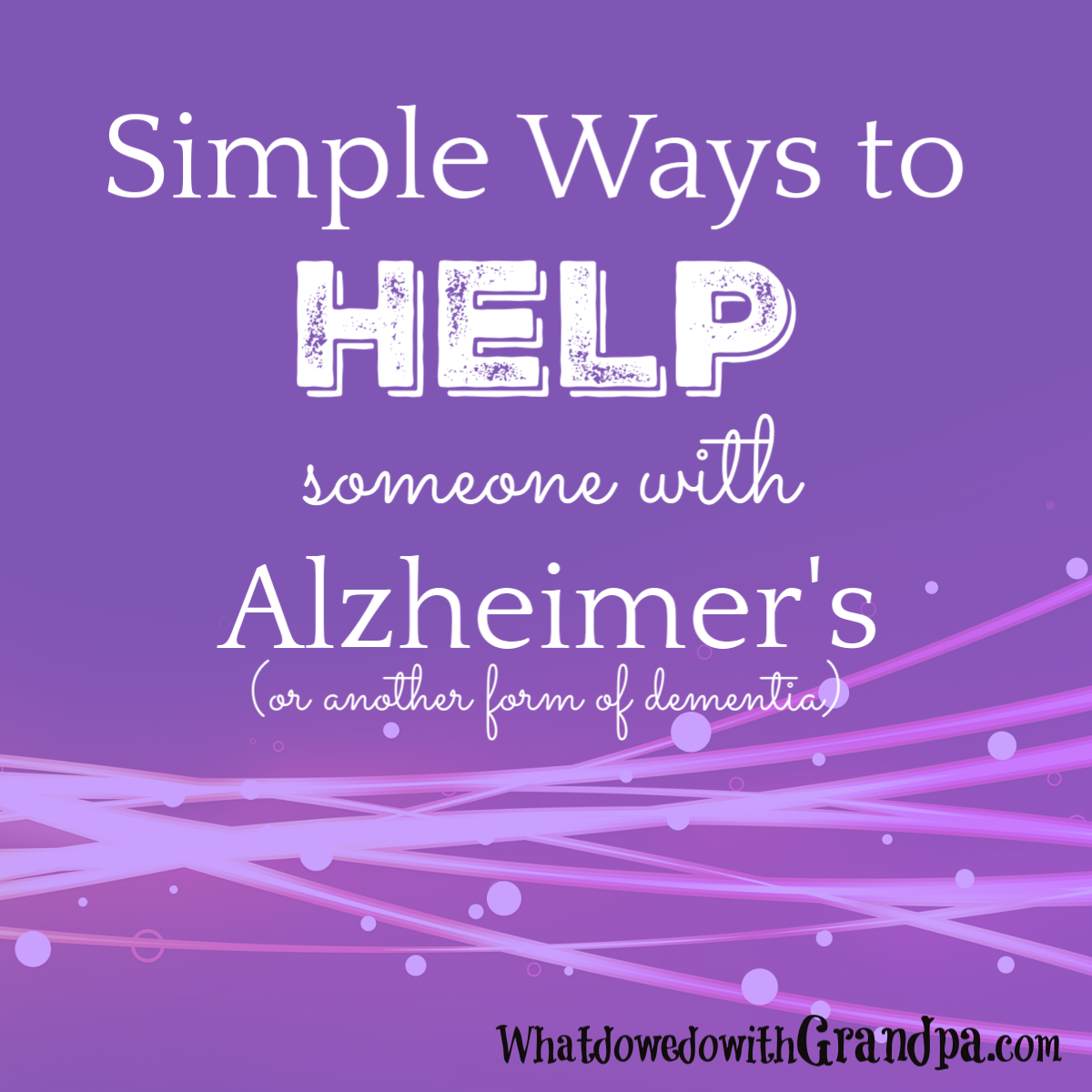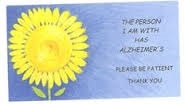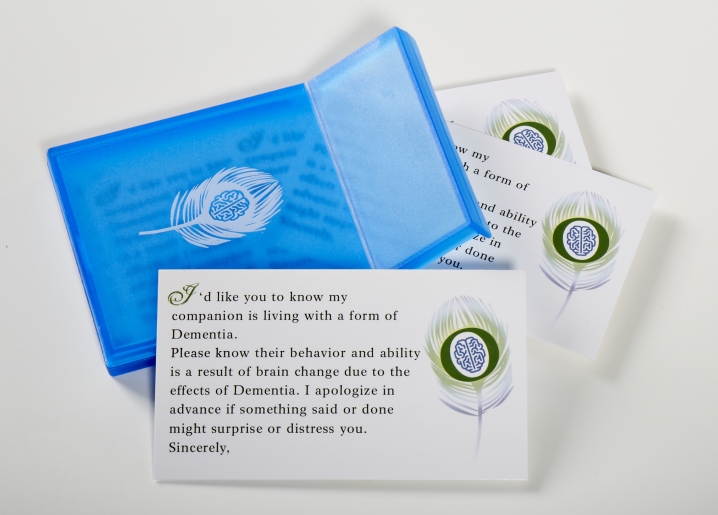
When people ask me what I do for a living and I tell them that I work in a Alzheimer’s/ Memory Support Unit, they often give me a sad look and say something like, “Oh, that must be depressing!”, or….. “Wow, I don’t know how you do it.” But the fact is that most days are not depressing … although they can be quite challenging. I certainly wish that people didn’t have to live with having Alzheimer’s or other forms of dementia, but it actually is possible to have fun and enjoy living in the moment.
People with dementia can still do a lot of things- particularly in the beginning and middle stages….They can enjoy nature, food, music, art, animals, videos, games, daily chores, human contact (like holding hands or talking) and more. In our unit, we laugh a lot and often! However, challenges arise when the person with Alzheimer’s/ dementia is out in the community because often, there are behaviors and confusion that can be hard to manage.
For instance, my Dad once told a woman at the grocery store she had nice “melons”. (and she was not in the fruit section!)…..He lost a great deal of his “mental filters” pretty early on in the disease and then he lost language all together. Similarly, he kept blowing the party horn at my Aunt’s surprise birthday when we were waiting for her to arrive and didn’t notice that everyone else was quiet.
It is also very common for someone with Alzheimer’s/ dementia to shoplift or hoard items like napkins. Or they may try to insist on wearing a coat on an 85 degree day; they may curse or toss wrappers on the floor or remove their clothing. And almost always, a person with brain dysfunction of any kind is slow at doing things- like getting a wallet out of a purse or finding a seat. Someone with dementia should not have to be housebound. Community members can be aware and offer help.
Please be Patient Card” or “Dementia Companion Card” (shown below) can help:
The 1st card reads: THE PERSON I AM WITH HAS ALZHEIMER’S/ PLEASE BE PATIENT ($5.00/ 20 cards or $15.00/ 100 cards)
The 2nd reads : I’d like you to know my companion is living with a form of dementia. Please know their behavior and ability is a result of brain change due to the effects of dementia. I apologize in advance if something said or done might surprise or distress you. ($10.00/ 50 cards)
Courtesy Cards like these are wonderful to help with any negative behaviors that may arise.. The rest of the world is going at such a fast pace but people usually respond with patience and compassion when the situation is discreetly explained to them through one of these type of car 

Take a look at this video presented by “Dementia Friends”, an organization in the UK and Canada that trains ordinary citizens how to spot and make life easier for those with dementia:
Here are a few tips on ways to be helpful to someone who may have dementia:
1. When out in public, ask if you can help someone who appears to be confused or having trouble.
2. People with dementia find shiny and reflective surfaces confusing. Redirect his or her attention to something else.
3. If someone appears to be lost, take time to WRITE DIRECTIONS down ( show them where to go if possible). ALWAYS SPEAK SLOWLY AND CLEARLY.
4. Be helpful when an uneasy customer is counting money; make sure they pay the correct amount and get the right change back.
5. With dementia, even simple tasks like filling out an address or writing a check can be difficult. Break down the task into smaller. REPEAT INSTRUCTIONS SLOWLY AND CLEARLY.
In short, do your best to smile while being calm, patient and positive around someone that you know or suspect has dementia. For example, if someone takes a candy bar and puts it in his shirt pocket while standing in the checkout line at the grocery store, just say to him, “Let me ring that up for you, I love Snickers Bars too!” CHANGE THE SUBJECT TO SOMETHING POSITIVE. Your fundamental job as a Dementia Friend is to make the person with dementia feel at ease by taking your time to be helpful, thoughtful and understanding.

